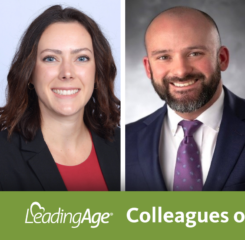Copyright Compliance for Movies, TV and Music
If you provide entertainment in your care facility, whether it’s film, television, or even music, you may be required to obtain a license. Federal copyright laws require that a facility that rebroadcasts or publicly performs entertainment obtain a license. The licensing requirement applies whether you are showing DVDs, streaming content, using a cable or satellite service or ordinary broadcast television, or just playing music.
As aging and care facilities are considered public under the US Copyright Act, they are required to obtain a license to provide entertainment for residents.
Movies and TV Series
In the United States, there are three licensing organizations for movies and TV supported by most of the largest media companies. The first of these, MPLC, is unlike the other two. MPLC provides a blanket license called an Umbrella License®, which is appropriate for the vast majority of unscheduled, casual viewing. If you have TVs in common areas and amenity spaces, this is the license for you. MPLC’s license is sold for one annual fee, does not require any reporting, and allows for unlimited exhibitions. The Umbrella License does not allow advertising or promotion.
The others, Swank Motion Pictures and Criterion Pictures, provide a different kind of license, called a title-by-title license (TbT). TbT licenses are sold as a single title for a single event and are appropriate for large scheduled events like a pop-up drive-in, with ticket sales and advertising as a component.
Each of these licenses is relatively inexpensive when compared to fines, which can cost thousands of dollars per infringement. If you have a commercial account with your provider (cable or satellite company), some of the content (particularly some news and sports programs) may already be licensed for public performances, and the fee may be included as part of the commercial package’s cost. However, the majority of film and television content that would be displayed on a facility’s screens would require an additional public performance license from a licensing organization like MPLC to fill such gaps in coverage.
Music
If you are playing music in your facility, you should consider whether you need to obtain one or more music licenses to avoid infringement fines. The four primary music licensing organizations are BMI, ASCAP, SESAC and GMR. Each of these has rights to a specific catalog of musical works. BMI, for example, has rights to 18.7 million works from more than 1.2 million copyright owners. Beware though, if you only have one of the three licenses, then your playlist needs to stay within their repertoire. There are also third-party services that can provide curated and licensed music, so that you don’t have to worry about staying inside one organization’s catalog.
Where Does the Money Go?
As a business, it is a fair question to ask where these license fees go. For each of MPLC, Swank, BMI, ASCAP, SESAC and GMR, a percentage of these fees goes back to producers, artists and creators. Copyright law is intended to support creativity and job-creation, and public performance licenses are one tool to fulfill those goals.
Can I be Sued for Non-Compliance?
Failure to obtain a license can result in costly litigation and fines. And these copyright organizations will perform investigations unannounced. In one recent example, ASCAP sued a facility in Iowa that it caught playing “That’s Life” as part of a karaoke event. BMI recently brought a lawsuit against a facility that played “Conga” by the Miami Sound Machine (among other works). Notably, that lawsuit was for more than a million dollars. Courts tend to award the most severe fines against businesses that have been made aware of their obligations and have chosen to ignore them.
You can arrange to obtain a license by contacting:
Audiovisual:
· Motion Picture Licensing Corporation (MPLC) at www.MPLC.org or 866-552-MPLC
· Swank Motion Pictures at www.swank.com
· Criterion Pictures at www.criterionpic.com
Music:
· Broadcast Music, Inc. at www.BMI.com
· American Society of Composers, Authors and Publishers (ASCAP) at www.ASCAP.com
· SESAC, Inc. at www.SESAC.com
· Global Music Rights (GMR) at www.globalmusicrights.com

Most Recommended
November 08, 2024
 HOTMA: New Rules for Housing
HOTMA: New Rules for Housing
November 06, 2024
 Colleagues on the Move, November 6, 2024
Colleagues on the Move, November 6, 2024
November 06, 2024
 Analysis: What Does the Final CY2025 Home Health Rule Include?
Analysis: What Does the Final CY2025 Home Health Rule Include?
October 29, 2024
Katie Smith Sloan Urges Members to Build a Movement, Take Action
Recently Added
December 04, 2024
Second OIG Infection Preventionist Compliance Report Released
December 04, 2024
 Colleagues on the Move, December 4, 2024
Colleagues on the Move, December 4, 2024
November 27, 2024



